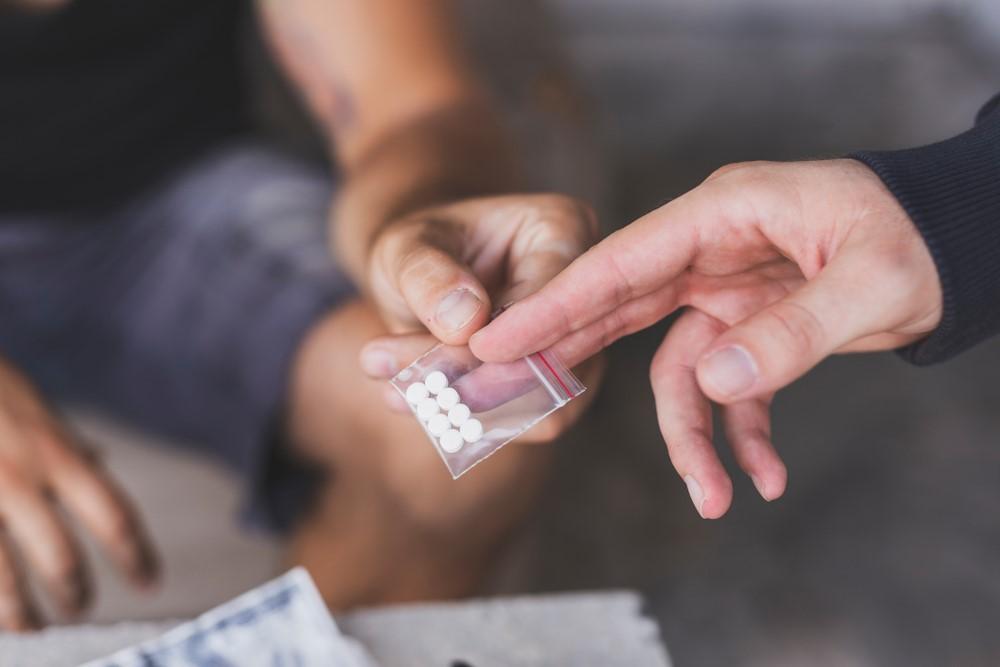
Oregon voters will decide on a ballot measure in November that would change the state’s approach to the possession of illegal drugs by focusing on prevention and treatment rather than punishment. Under Measure 110, jail time and criminal convictions for low-level drug possession would end. In its place, the state would set up a system focused on recovery programs and housing for people with drug addictions.
The measure wouldn't legalize any drug but would eliminate criminal charges for possession of small quantities of them, which currently are misdemeanors. Instead, police would issue citations to people with a $100 fine that they could avoid if they receive an evaluation at an addiction recovery center.
The measure aims to put people into recovery programs and keep a criminal conviction off their record. It also seeks to reduce the stigma tied to a drug arrest and conviction that can prevent a person from getting a job or housing and keep them stuck in a spiral of addiction.
Advocates say the measure is sorely needed. Oregon consistently ranks near the bottom of states in access to addiction treatment.
“This war on drugs has obviously not been effective,” said Janie Gullickson, executive director of Mental Health & Addiction Association of Oregon. “It’s called the ‘failed war on drugs.’”
Gullickson is a chief petitioner of the measure, which has input from dozens of Oregon addiction and recovery providers and advocates. The other petitioners are Haven Wheelock of Outside In, a Portland nonprofit that works with homeless youth, and Anthony Johnson, who led Oregon’s campaign to legalize and regulate marijuana.
The Drug Policy Alliance worked with supporters to draft the measure, which is called the Drug Addiction Treatment and Recovery Act. The alliance is involved nationwide in efforts to reform existing drug laws, with a focus on treatment and education instead of incarceration.
The measure would put more money into addiction treatment programs and related services like housing at a time when Oregon’s recovery providers face the threat of cuts. State forecasters project a $4 billion shortfall in the next two-year budget period. But the measure is designed to be paid for by current marijuana tax revenue.
The state projects $284 million in marijuana tax revenues in the next two-year biennium, or about $140 million a year. Under the measure, state lawmakers could continue to appropriate the state’s first $45 million in marijuana taxes each year for other unrelated state needs such as roads and public schools.
The rest of the revenue to go toward the measure and pay for substance use disorder treatment, peer support and recovery services and housing. Each coordinated care region in Oregon would get an addiction recovery center to assess and treat people after they receive citations for drug possession.
Supporters say that change would bring long-term benefits for people who suffer from addiction.
“If you put them in jail, you’ve only increased the mountain they have to climb because they now are unable to gain finance, work and housing unlike people who don’t have a record,” said Richard Harris, a retired director of mental health and addiction services for the Oregon Health Authority.
Gullickson knows first-hand the need for people to get access to recovery treatment early in life. She was in and out of jails in Washington and Yamhill counties before she went to Coffee Creek Correctional Facility for convictions stemming from her drug addiction. She became addicted to methamphetamine while a teenager and continued to struggle through her 20s. In prison, Gullickson had access to a recovery program that helped her. She left prison in 2006.
“If I’d gotten help at 16 or 15, maybe the course of my life would have changed,” said Gullickson, 52.
The measure also seeks to address racial inequities that come from enforcement of existing drug possession laws. The Oregon Criminal Justice Commission projects that racial disparities in drug possession arrests would drop if the measure passes. Currently, Black Oregonians are overrepresented in drug possession arrests compared to white Oregonians, according to the commission’s report. That disparity would fall by 95%.
Bobby Byrd of Portland, an organizer on the campaign, had trouble getting on with his life after a drug conviction in 1993. Byrd said police in North Portland arrested him after finding drugs in a bushes nearby that weren’t on him and that he didn’t know about.
Byrd was hired by a bank but then got fired when managers looked into his record and discovered he had a felony when he sought a promotion. He was also denied a professional license as a phlebotomist. He struggled to find a landlord who would rent to him, even though he has good credit, he said.
“Unfortunately, I had to take jobs where people could take advantage of me,” said Byrd, who is Black. “They make you feel expendable because you’ve got a felony background.”
Byrd said he wants to see the measure pass so other people don’t have to go through the struggles he faced.
The measure would establish an oversight and accountability council to oversee the funding. The Oregon Health Authority would appoint at least 17 members. The group would include representation for providers, people who have experienced substance use disorders, coordinated care organizations and communities that have faced the most harm in the current system of drug laws.
Under the measure, the authority would appoint members by Feb. 1, 2021. It calls for the state to set up a temporary telephone addiction recovery center right away that would connect people to services after they receive a citation. The council would establish rules that govern the distribution of funding by June 30, 2021. The council would assign the addiction recovery centers by October 2021, which can be in existing facilities.
You can reach Ben Botkin at [email protected] or via Twitter @BenBotkin1.